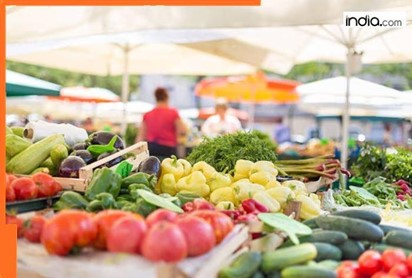In a world grappling with rising food insecurity and disrupted supply chains, one small South American nation has quietly achieved a historic feat. Guyana is now officially the only country in the world that produces 100% of its own food, meeting the requirements of all seven major food groups — grains, pulses, fruits, vegetables, milk, meat, and fish.
This remarkable accomplishment places Guyana ahead of global giants such as the United States, India, China, Canada, and Japan, none of which have reached full food self-sufficiency. While many countries import essential food items or rely on global trade networks, Guyana has built a robust domestic agricultural ecosystem capable of independently feeding its population.
Food self-sufficiency is not just a marker of national pride — it is a critical pillar of food security. In times of geopolitical tensions, pandemics, or climate-related disasters, countries that depend on imports for essential food supplies face significant risks. Guyana’s achievement shields it from such vulnerabilities, ensuring that even in times of global instability, its population will remain nourished and secure.
Experts credit Guyana’s food success to a combination of government policy, investment in local farming, and a strong focus on sustainable agriculture. Over the past two decades, Guyana has made strategic efforts to modernize its agricultural practices while preserving traditional knowledge systems. From rice and cassava production to dairy farming and inland aquaculture, the nation has diversified its food sources to meet the nutritional needs of its people.
The government’s emphasis on agricultural education, rural development, and local innovation has helped empower farmers and communities. Combined with favorable climatic conditions and a relatively small population, these factors have enabled Guyana to accomplish what no other country has: total food independence.
As climate change and global unrest continue to threaten food production and distribution across the planet, Guyana offers a valuable model for nations aiming to strengthen their food systems. Its journey proves that even a small nation, with the right vision and policy direction, can lead the world in achieving food security and sovereignty.
FAQs
Q1: What does it mean that Guyana is 100% food self-sufficient?
A: It means Guyana produces all the food required to meet the nutritional needs of its population across seven essential food groups — grains, pulses, fruits, vegetables, milk, meat, and fish — without relying on imports.
Q2: Why is Guyana’s food self-sufficiency significant on a global scale?
A: At a time when global food supply chains are vulnerable to conflict, climate change, and economic crises, Guyana’s achievement serves as a rare example of resilience, sustainability, and national food security — something even major economies have yet to accomplish.












